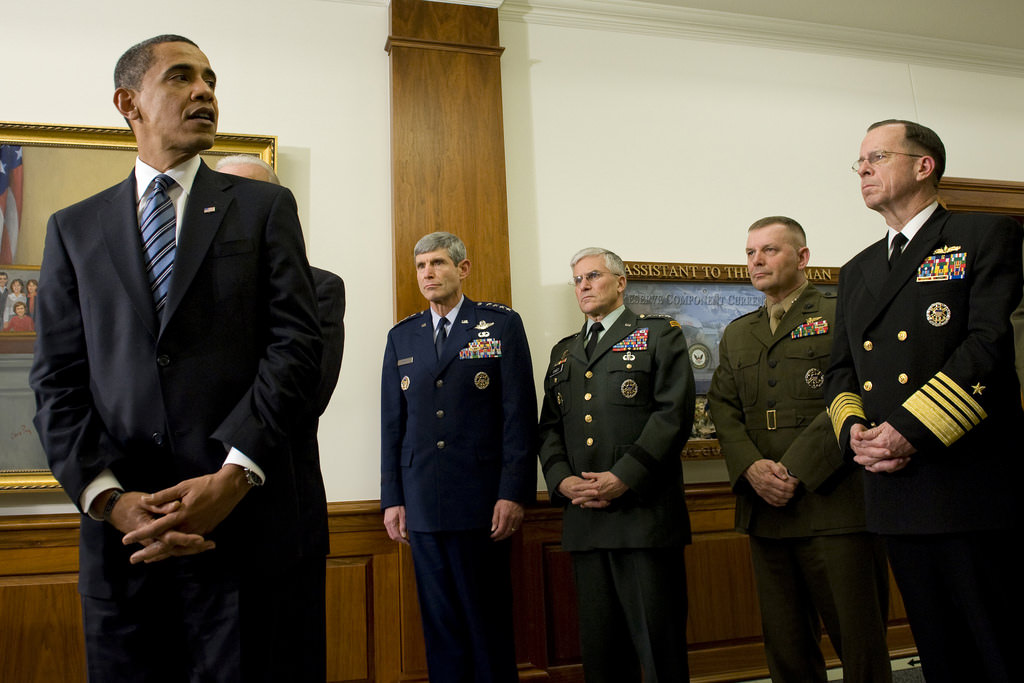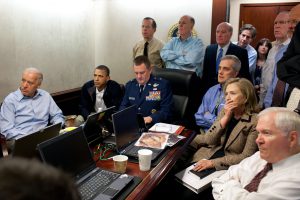History
How Will History Remember Obama?
Mostly, however, it was just disappointment. In both race relations and foreign relations, Obama unleashed forces, either deliberately or carelessly, which were beyond his control.

Ta-Nehisi Coates started the revisionism over the most divisive and controversial President in post Cold war history, as Ta-Nehisi Coates is wont to do. Which is unfortunate, because Obama, for good or for bad, deserves a fair, objective, non-linear analysis of his record, and a certainly more nuanced look than the partisan hagiographies that are currently emerging.
President Obama, the first biracial leader of the free world, and one of the most gifted extemporaneous speakers of our time, is a textbook example of a young, professorially cynical, cautious, but overall idealistic young leader who was eventually chastened by time. Coates’ essay is a start in what will be the repeated partisan glossing of the legacy of an interesting character, but one who was eventually defeated by personal naiveté and the structural forces that resided outside of his control. He deserves a more thorough scrutiny than terribly worded think pieces focusing on nothing other than one single defining factor, his race.
I remember when Obama stood as a smooth-talking Senator against Hillary Clinton in 2008. My rookie journalism career pretty much coincided with the last year of Bush 43 and Obama’s election campaign. One of the earliest indications of how divisive and tribalistic Obama’s reign would turn out to be was evident when Oprah betrayed her “empowered” feminist sorority and endorsed Obama over Hillary. Even Oprah, the ultimate women’s liberation activist, couldn’t get over her race, for the ideals she had promoted all her life.
Obama continued to cynically play on that, at least in domestic policies. Obama had a golden opportunity to improve race relations in the US, being biracial himself. But he focused solely on his black identity. It started during the Travyon Martin incident with Obama weeping, and continued with Ferguson and with every police shooting. While there is no denying that American police forces in deep inner cities have racist cops, there is little evidence of structural racism, and a lot of black police officers also have had trigger happy hands due to the inherent training problems and the omnipresence of guns in America. More importantly, there was no need for the US President to go on deep existential rants about the character of his nation every time someone, even those with criminal track records, was shot during a police encounter.
He was repeatedly reminded that he need not meddle in police matters in inner cities, because of the potential to embolden radical groups and delegitimise police authority, so much so, that he was accused of having a “War on police” and was forced to apologise. As Heather Mac Donald has documented, crime increased significantly under Obama. Liberal media and blogs like MTVNews, Buzzfeed, Huffington Post, and Teenvogue, emboldened by direct Presidential intervention regarding race matters, and mostly (wo)manned by young urban humanities graduates, started spewing unadulterated hate towards “angry white men,” polarising society even further. In Universities, it was under Obama that Title X madness spread, resulting in snowballing victimhood, no-platforming and minority grievances.
Did Obama do all of this because he hated America? Unlikely. The world is not as conspiratorial as some would like to think. But he definitely believed in the inevitability of the new cosmopolitan coalition of race and ethnic politics being the support base of the Democrats, and played on it.
He never understood, that the forces of tribalism he was helping unleash would inevitably turn majoritarian. In a way, he had an opportunity to move beyond “hyphenated Americans” but he quietly reinforced it. In his final days, he perhaps realised what he had done and tried to temper it. With the revolution devouring her children yet again, mushrooming campus politics of race, safe spaces, BLM and The Chalkening, riled a veteran community organiser like him. After all, Obama himself was a product of the 1960s free speech culture. The illiberal anti-freedom forces he helped unleash shocked him too, and he repeatedly complained about it, calling college students “coddled” and slamming “Political Correctness”. But by then, in perhaps the greatest twist of irony, the proverbial excreta had already impacted the rotary cooling device. The social fabric of America was and continues to be broken, and this happened under Obama and his legacy of toxic identity politics. His racial legacy will therefore remain as complicated as the man himself.
***
On foreign policy, however, Obama’s record is more straight forward, and here, his cynicism was a relative boon for the republic. In fact, arguably, the shift we’re seeing in Donald Trump’s government was started by Obama, who despite his optimism, was perhaps the most cautious President of the union since Senior Bush left in 1992. Donald Trump and Trumpian grand-strategy (and I use the term grand-strategy loosely) is, in a way, a manifestation of a trend that started under Obama. Obama’s foreign policy provided a necessary course correction and recalibration from the liberal hegemony of post Cold war America. Rhetorically, he was, of course, committed to global freedom through liberal democracy and the “Islam is not an enemy” nonsense of Bush 43. But, by comparison, he was far more circumspect and amoral with regards to using force.
For better or for worse, of which history will be the sole judge, Obama realised a fundamental truth of geopolitics: that there are zones of interests for Great powers, and the Middle East ceased to be one of them for America. He was blinded by emotive value crusaders like Samantha Power and Hillary Clinton into going into Libya and toppling Gaddafi, which he has regretted to this day.
He had zero reverence for the conventional foreign policy wisdom of the DC blob. He loathed European free riders spending more and more cash on benefits for drug addicts and economic migrants at the cost of American taxpayers paying for Euro security. And he understood, cynical that he was, that it is difficult to continuously justify to American people that America needs to constantly promote values in a region beset with medieval cultural feuds, while being antagonistic to Russia. After all, Russia as a nation state may be a geopolitical adversary returning to Cold war form, but average Russians are not pouring into Europe to mow down 8-year-old kids at a Christmas market.
This strategic vision is consistent with American public mood about the Middle East, and is something Donald Trump has also tapped into. Obama broke with American foreign policy elite, and his reliance on drones for targeted decapitation strikes, and his dogged resistance to using American blood and treasure for solving cultural sectarian conflicts is, again, a product of his hard nosed and conservative realism. And realism, i.e. having a sense of proportion, is a historically good quality in diplomacy.
How will Obama be remembered by history? His legacy is, for lack of better word, mixed. The death of Bin Laden was one of the transforming moments.

A stoic Obama sits over in a far corner transfixed to the screen. I frankly thought that the man looked different compared to slick Billy C or an overly idealistic, almost Messianic W; Obama was more like a symbol of prudent, unflappable sangfroid. I went on to theoretically align with his policy of getting out of the Middle East, on his Hunter Killers decimating Al Qaeda along the Pakistan-Afghanistan border, and his overall realignment of the strategy of mindless, interest-free global primacy aspiration.
Mostly, however, it was just disappointment. In both race relations and foreign relations, Obama unleashed forces, either deliberately or carelessly, which were beyond his control. And that is how history will also remember him. A man, cynical, and prudent, who could’ve changed America if he wanted to, but was incapable of moving beyond his self-imposed limitations, and who was ultimately broken by the structural forces of time.





